Professional Courses
Industry-relevant training in Business, Technology, and Design
Categories
Interactive Games
Fun games to boost memory, math, typing, and English skills
Typing
Memory
Math
English Adventures
Knowledge
A Strategic Guide for JEE Main Droppers

Taking a drop year to reattempt JEE Mains is not a failure; it’s a strategic decision. Every year, thousands of students decide to pause and prepare with more focus, more clarity, and a stronger plan.
But here’s the truth: a drop year doesn’t automatically lead to better results. It only works if you treat it with seriousness, structure, and self-discipline.
In this guide, we’ll walk you through:
- The number of JEE Main attempts for droppers
- How to use each session strategically
- Month-by-month prep plan
- Daily routine without burnout
- Mindset shifts needed for success
- Common dropper mistakes and how to avoid them
- What to do if things still don’t go your way
Let’s turn your second chance into your best one.
Why Do Students Take a Drop for JEE Mains?
There are many reasons students drop a year for JEE Mains:
- You didn’t qualify for JEE Advanced
- You couldn’t get into your dream NIT or IIIT
- Your board exams affected your prep
- You started late and couldn’t complete the syllabus
- You lacked the right guidance or resources
Whatever your reason, what matters now is what you do with this time.
How Many Attempts Do Droppers Get?
Let’s settle this right away.
According to NTA:
- You can appear for JEE Mains for 3 consecutive years after your Class 12 passing year
- Each year has 2 sessions (January and April)
That means:
Maximum of 6 attempts across 3 years
For example:
If you passed Class 12 in 2024, you can appear in:
- 2024 (2 attempts)
- 2025 (2 attempts as a dropper)
- 2026 (2 attempts if you drop again or don’t get admission)
As a dropper in 2025, you still get two solid attempts to prove yourself.
Understanding JEE Main attempts for droppers helps you plan better, reduce panic, and build confidence with a clear timeline.
Why Dropping Only Works With Strategy
Just having more time isn’t enough. A drop year must be treated like a full-time job—with measurable goals, timelines, and effort.
Successful droppers don’t study harder. They study smarter.
They:
- Rebuild their foundation from Class 11
- Master time management
- Take mock tests consistently
- Analyse their mistakes relentlessly
- Protect their physical and mental energy
- Have a clear plan for both January and April attempts
Month-by-Month Study Plan
Here’s a breakdown of how to structure your 12-month drop year.
April – June: Reset and Reflect
- Analyse past performance honestly
- List all weak topics (especially in Class 11)
- Begin rebuilding from the basics
- Revise Chemistry NCERT word by word
- Start solving moderate-level questions with a focus on accuracy
- Set realistic daily and weekly goals
July – September: Gain Momentum
- Complete 50–60% of the JEE Mains syllabus
- Practice more advanced questions
- Begin mock tests once a week
- Make an error log to track patterns
- Mix subjects in each study session to improve retention
- Develop consistency over intensity
October – December: Simulate and Refine
- 85–90% syllabus should be complete by mid-November
- Focus on mixed-topic and full-length mock tests (2–3 per week)
- Start intensive revision sessions
- Practice JEE Mains PYQs regularly
- Use weekends for deep topic-wise revision
- Work on speed + accuracy + calmness
January: First Attempt
- Take the JEE Mains January session seriously
- Simulate exam conditions at home every 2 days
- Do not add any new topics in the last 10 days
- Maintain sleep and hydration for mental sharpness
- After the exam, take a short 2–3 day break, then resume
February – April: Final Push
- Analyse your January result
- Identify and fix target topics
- Practice full mocks every alternate day
- Refine short notes, formulas, and error logs
- April attempt = redemption + mastery
Dropper-Friendly Daily Routine (Non-Coaching)
Here’s a plain-text study schedule designed to avoid burnout:
6:30 AM – 7:30 AM: Wake up, walk/stretch, breakfast
7:30 AM – 10:00 AM: Major subject session (Physics or Maths)
10:00 AM – 10:15 AM: Short break
10:15 AM – 12:30 PM: Concept practice (Chemistry or backlog topic)
12:30 PM – 2:00 PM: Lunch + power nap
2:00 PM – 4:00 PM: Solve questions (timed session)
4:00 PM – 5:00 PM: Break, light snack, screen-free time
5:00 PM – 7:00 PM: Full mock test or past year paper
7:00 PM – 8:00 PM: Analyze mock, note mistakes
8:00 PM – 9:30 PM: Revision of weak areas or formula review
10:00 PM: Sleep
Stick to a routine that works for you, but make sure it balances study, testing, and recovery.
Study Tips That Actually Work
1. Master the Basics First
Don’t chase advanced-level questions until your fundamentals are strong. One small gap in a concept can bring down your score drastically.
2. Prioritise NCERT for Chemistry
For JEE Mains, especially in Inorganic and Organic Chemistry, NCERT is unbeatable. Read it line by line; multiple times.
3. Practice with a Timer
Every question should be solved under time pressure. That’s how you simulate the real test environment.
4. Review More Than You Learn
It’s not about how many new topics you study. It’s about how well you retain and apply the ones you already did.
5. Weekly Error Analysis
Every weekend, go through your mistakes. Group them by concept. Create a cheat sheet of frequently misunderstood problems.
Mindset Shifts Every Dropper Needs
You’re Not Behind
Taking a drop doesn’t make you late—it gives you clarity. Many top NIT and IIIT students are successful droppers.
Consistency Beats Motivation
You won’t feel motivated every day. That’s okay. Create habits and systems that keep you on track.
One Great Attempt Is Enough
You don’t need six good attempts. You need one great attempt. Focus on quality, not quantity.
You're Not Alone
There are lakhs of droppers in India. But what separates those who make it is not coaching or money—it’s discipline, self-belief, and smart strategy.
Mistakes to Avoid
- Avoiding January attempt: It’s a real chance to test yourself and build momentum
- Ignoring mental health: Take weekly breaks, meditate, talk to peers or family
- Comparing yourself: Focus on your own growth. Social media will only distract
- Neglecting weak topics: The exam will find your blind spots—fix them now
- Thinking one bad test = failure: It’s a stepping stone. Learn and reset.
What If I Don’t Make It Even After Dropping?
Here’s the honest truth:
- Life doesn’t end if you don’t crack JEE Mains
- Your efforts build discipline, resilience, and real learning
- There are excellent private colleges, state exams, and career paths beyond this
- Your self-worth is not tied to a percentile
But if you follow a clear plan, stay consistent, and keep improving, you’re more likely than ever to succeed.
Final Words: Your Best Attempt Starts Now
Taking a drop year for JEE Mains is a powerful move—if you use it right.
This is your chance to:
- Study with clarity
- Build discipline
- Master the test format
- Take full control of your preparation
- Convert self-doubt into self-belief
Don’t waste this year worrying about others. Focus on your plan, your growth, and your performance.
The road to top NITs, IIITs, and beyond is open.
You’ve got time. You’ve got tools.
And now, you’ve got the strategy.
Start fresh. Start focused. Let your best attempt begin today.

Learn how negative marking works in JEE Main 2025 and how to avoid it with practical, proven strategies.

Learn how to prepare for JEE Main 2025 with a proven, winning strategy. Get a detailed plan, subject-wise tips, and...

Learn the chapter-wise weightage for JEE Main 2025 across Physics, Chemistry, and Maths. Prioritise smartly and...

Discover the most important chapters for JEE Main 2025 across Physics, Chemistry, and Maths. Focus your prep smartly...

Discover top JEE Main books for Physics, Chemistry & Maths. Learn how NCERT & reference books pair with AllRounder.
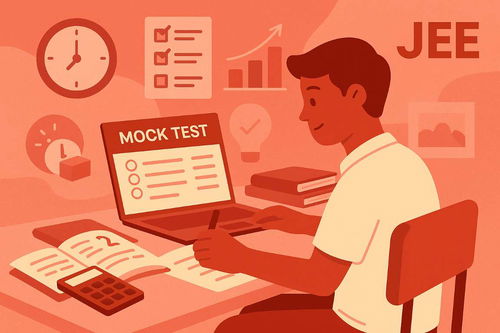
Looking for free JEE Main mock tests to boost your preparation? Discover the best platforms, tips, and strategies to...

Discover what scores and percentiles are needed to secure seats in top NITs, IIITs, and GFTIs. Learn how category...
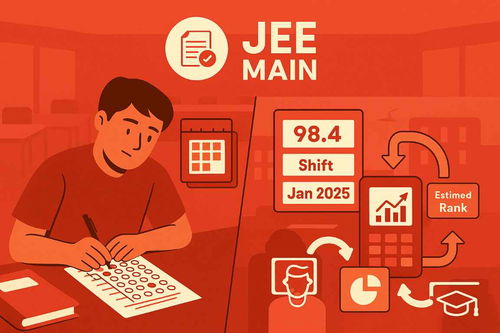
Understand the exact difference between JEE Main percentile and rank. Learn how scores are normalized across...

Understand the JEE Main scoring system to maximize your result. Learn the marking scheme, how to handle negative...

Confused about the JEE Main attempt limit? This guide clarifies how many times you can appear, the eligibility...

Wondering how many times you can appear for JEE Mains? This guide explains the total attempts allowed, session...
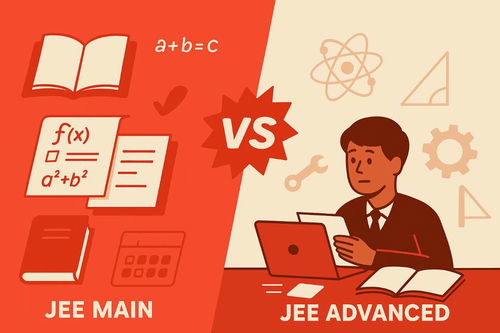
Discover the key differences between JEE Main and JEE Advanced in terms of syllabus, pattern, difficulty, and prep...

Confused about JEE Main qualification rules? This blog gives you a detailed checklist of eligibility criteria,...

Explore this simple, step‑by‑step guide to the JEE Main counselling process. Learn how to register, fill choices,...

Curious about how many times SC students can attempt JEE Main? This complete guide covers JEE Mains attempt rules,...
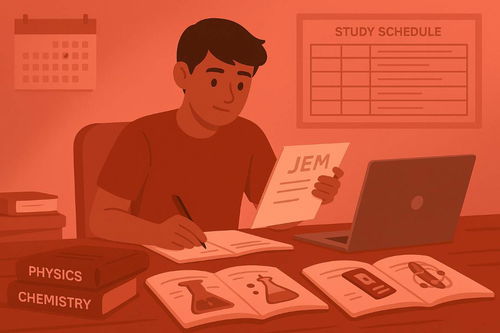
Want to score 200+ in JEE Main? This practical guide gives you proven tips, subject-wise strategies, mock test...

Wondering how the JEE Main exam is structured? This complete guide breaks down the official JEE Main exam pattern...
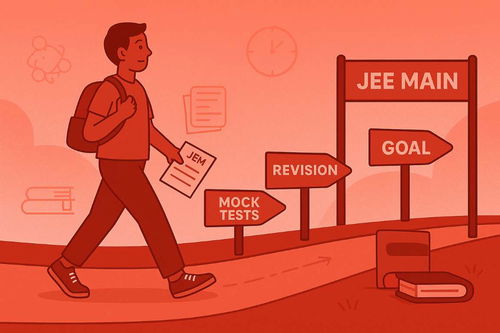
Learn how to crack JEE Main on your first attempt with proven strategies. This guide covers planning, conceptual...
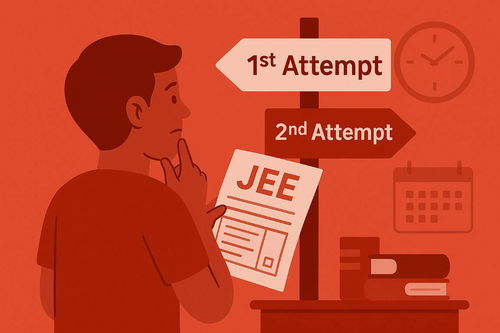
Learn how many JEE Main attempts you can take after Class 12. This guide covers eligibility, attempt limits, subject...
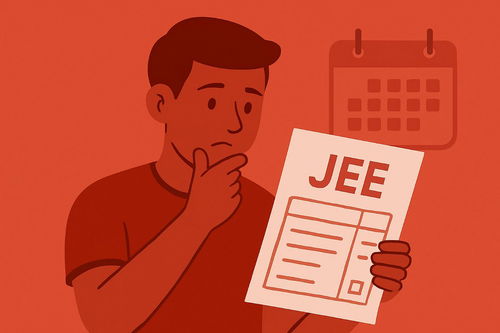
Learn about the JEE Main age limit requirement and key eligibility rules. Understand the attempt policy, Class 12...

Discover the most important topics for the JEE Main exam in Physics, Chemistry, and Mathematics. Learn subject-wise...

Get a subject-wise preparation strategy for JEE Main step-by-step using smart tips and trusted resources from AllRounder.ai.

Looking to score high in JEE Main 2026? Discover expert preparation tips on creating smart study plans, mastering...

Confused about JEE Mains eligibility? This detailed guide explains JEE Mains eligibility criteria including...
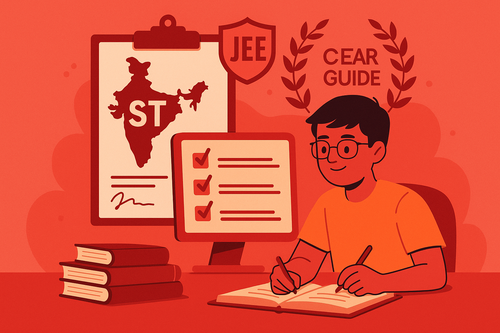
Confused about JEE Main Attempts for ST Category? This detailed guide covers attempt limits, age relaxations,...
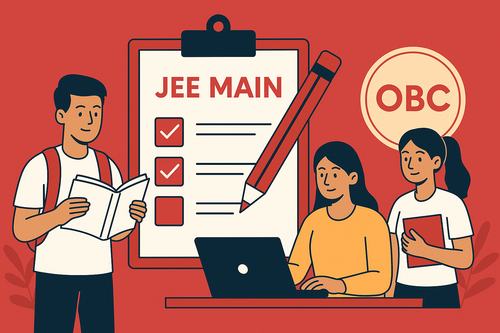
Wondering how many times OBC candidates can appear for JEE Mains? This detailed guide explains JEE Main Attempts for...

Dropping a year for JEE Mains? This in-depth strategy guide helps droppers optimise their JEE Main attempts with...

Confused about how many times you can appear for JEE Main? This guide explains the number of JEE attempts, session...
Resources
-
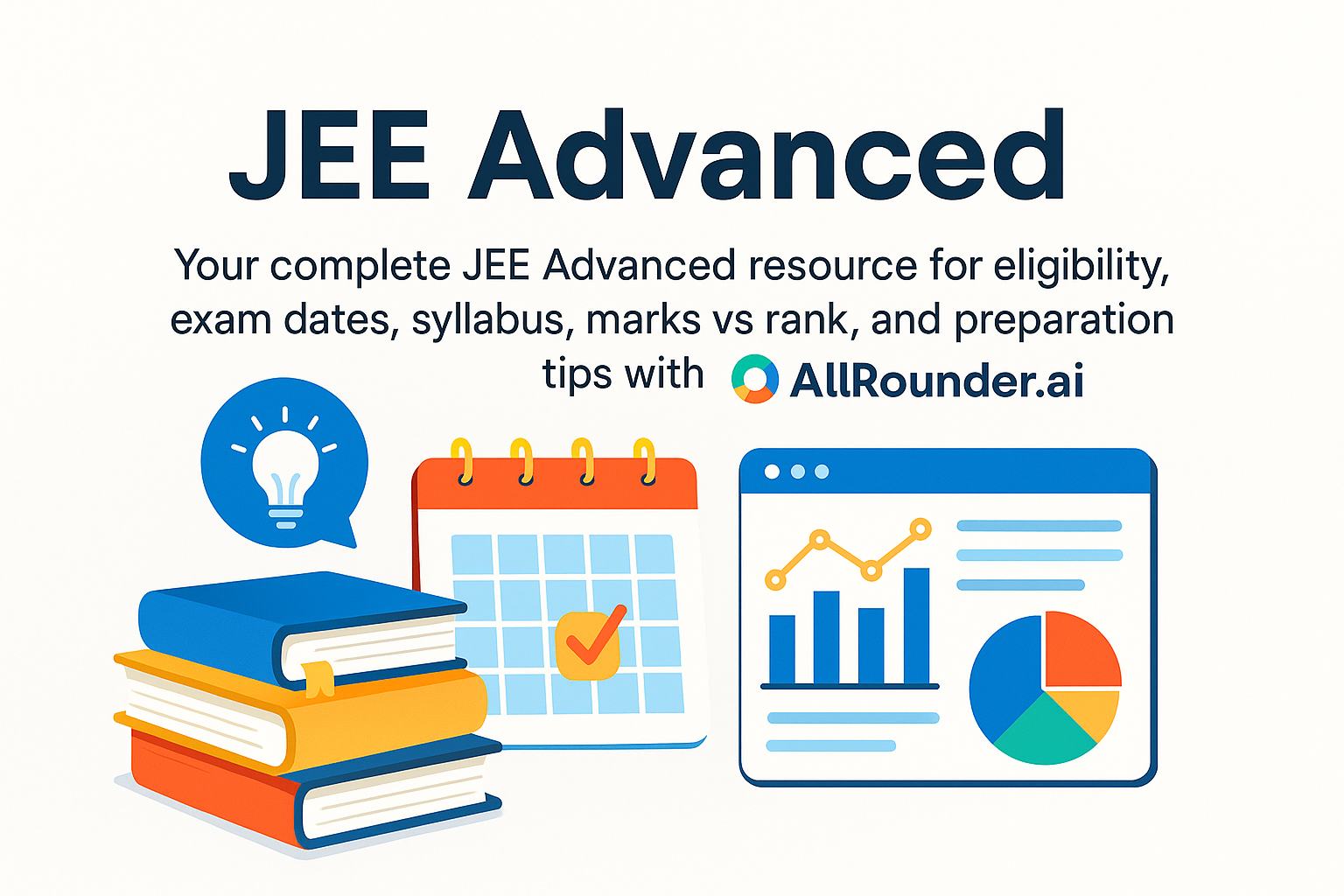
Your complete JEE Advanced resource for eligibility, exam dates, syllabus, marks vs rank, and...
-
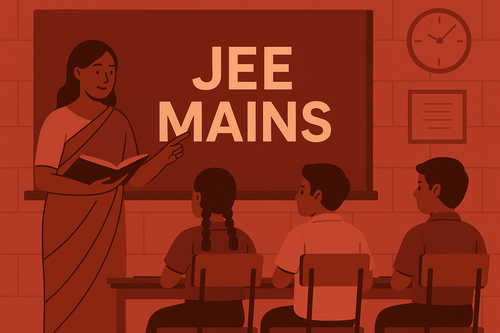
Understand the entire JEE Main process, from application and eligibility rules to the exam...
-

Explore the IB Board – a global curriculum emphasizing holistic, student-centered learning...
-

Learn about CBSE – India’s national school board offering a standardized curriculum, NCERT...
-

Explore everything about the ICSE board – its curriculum, subjects, exam format, and academic...
